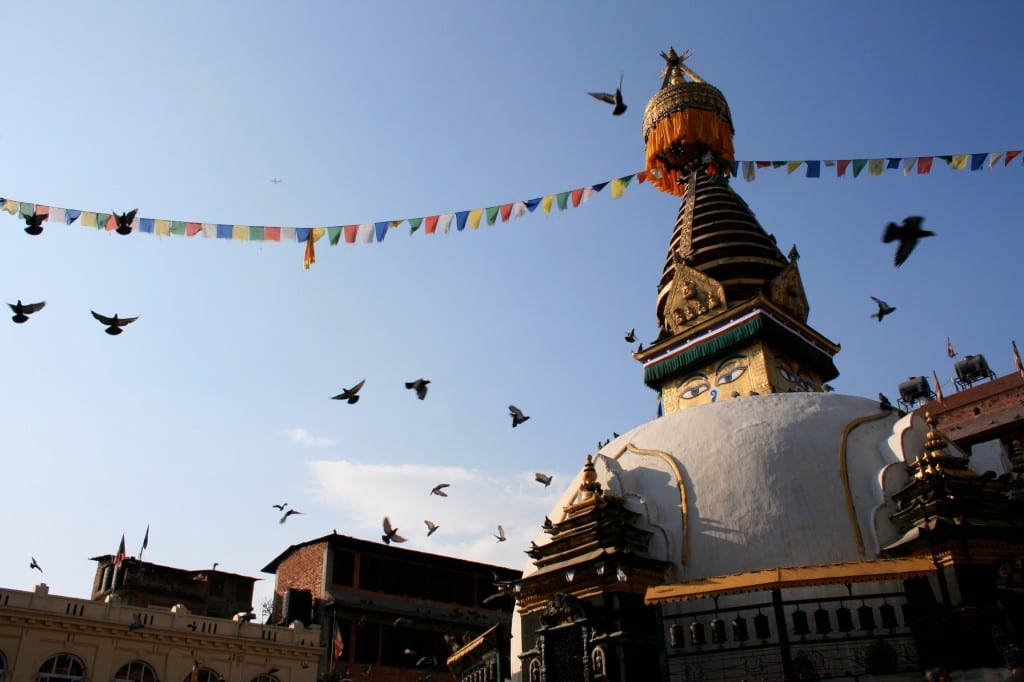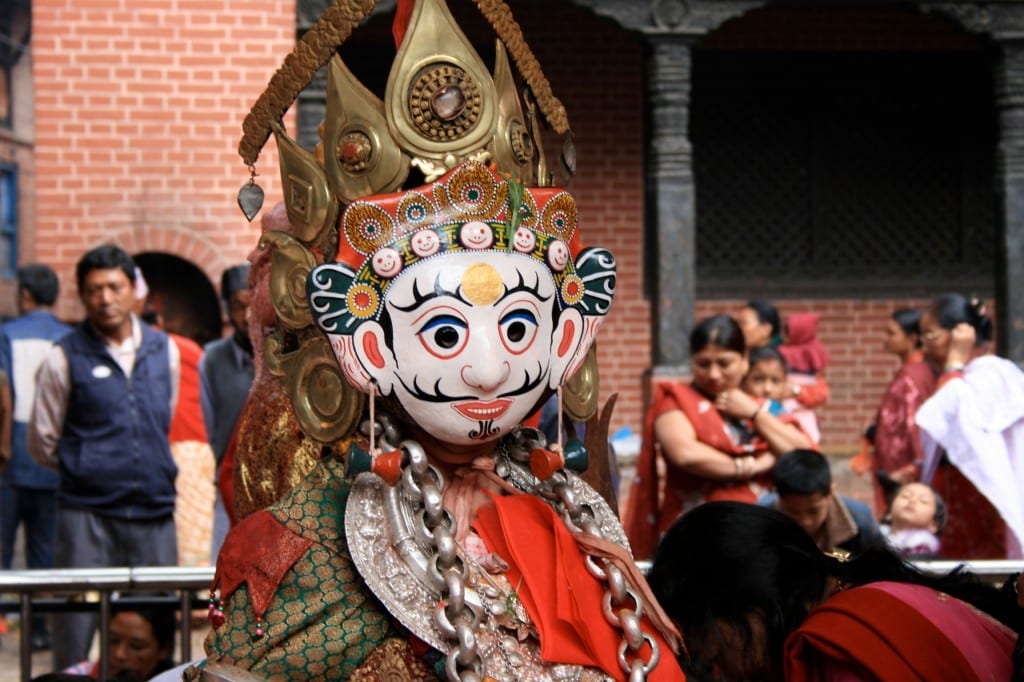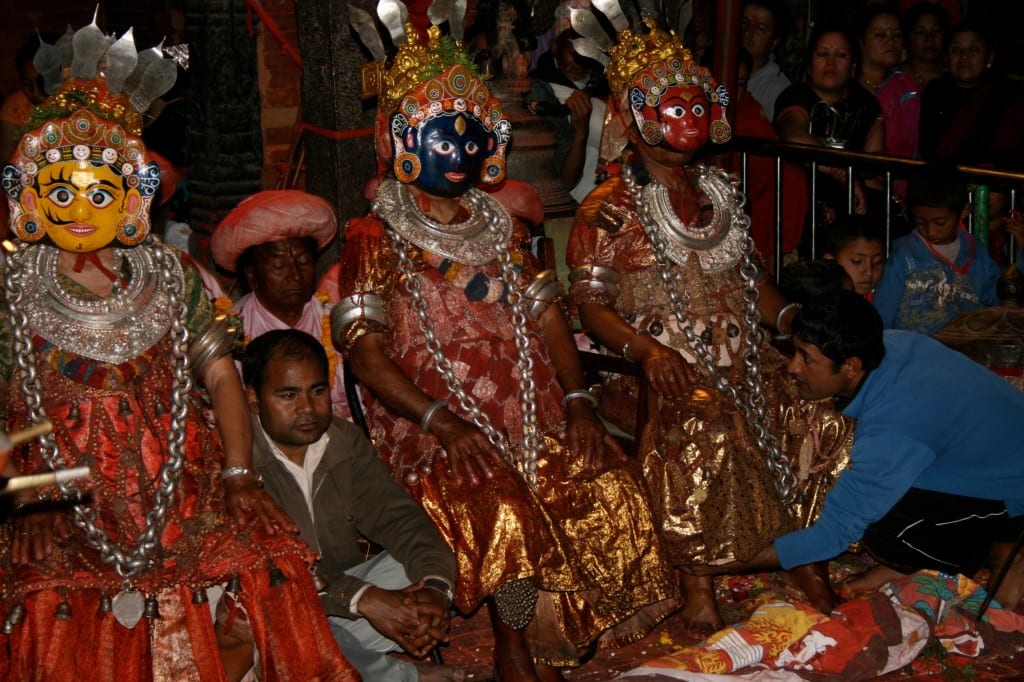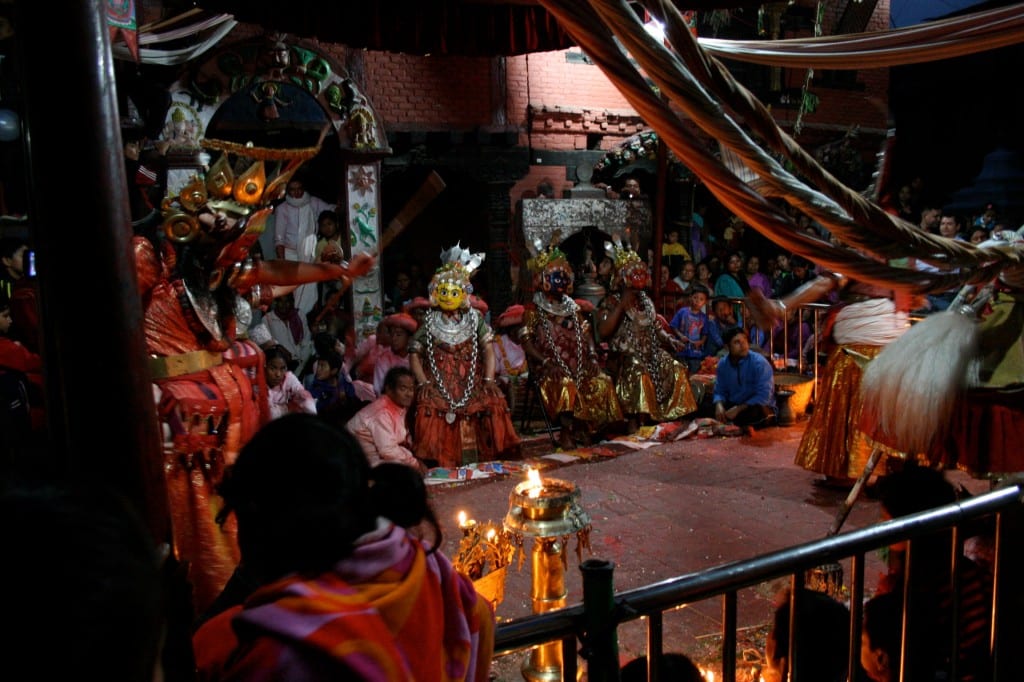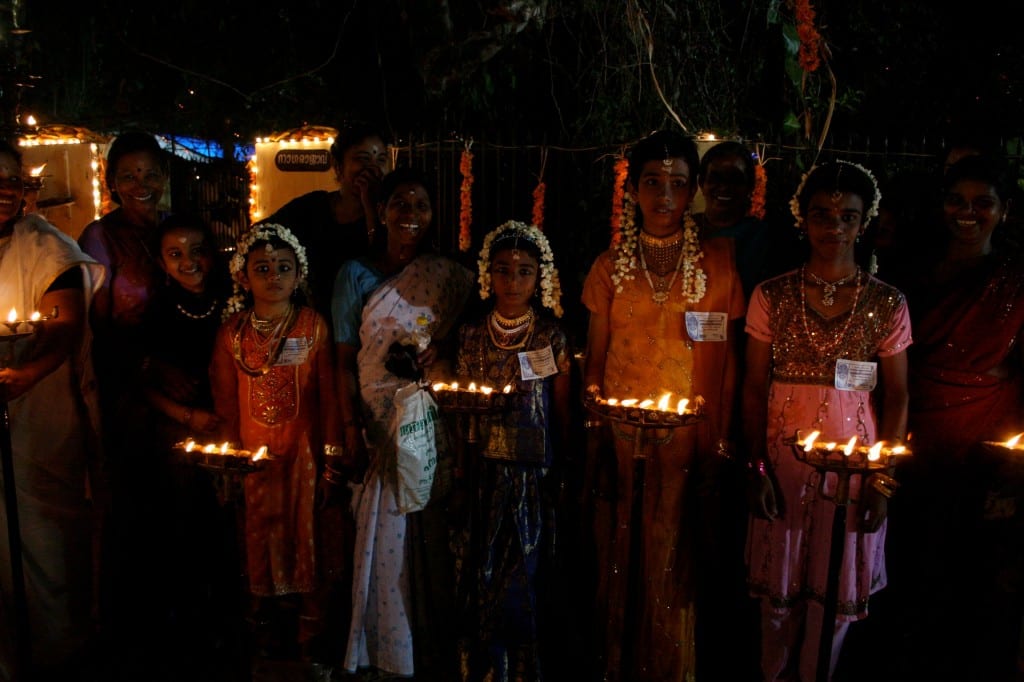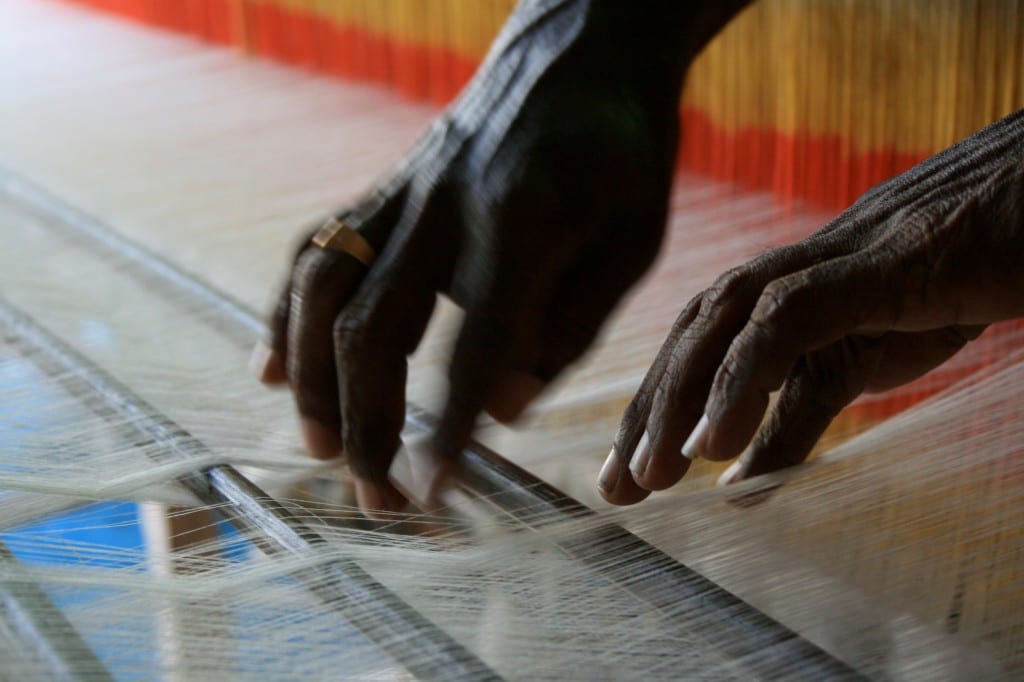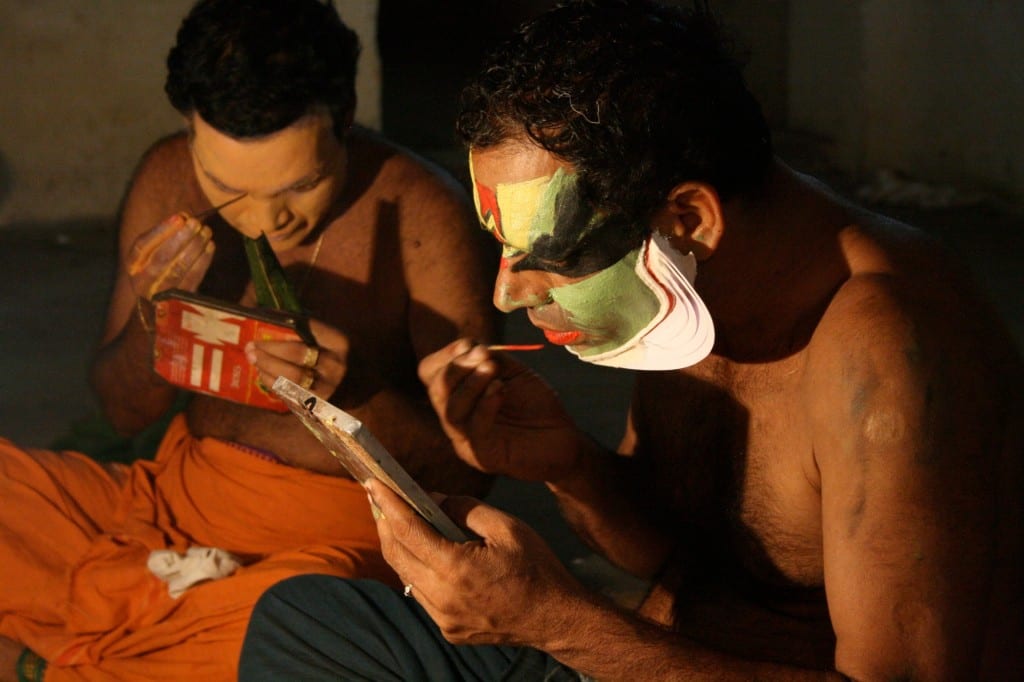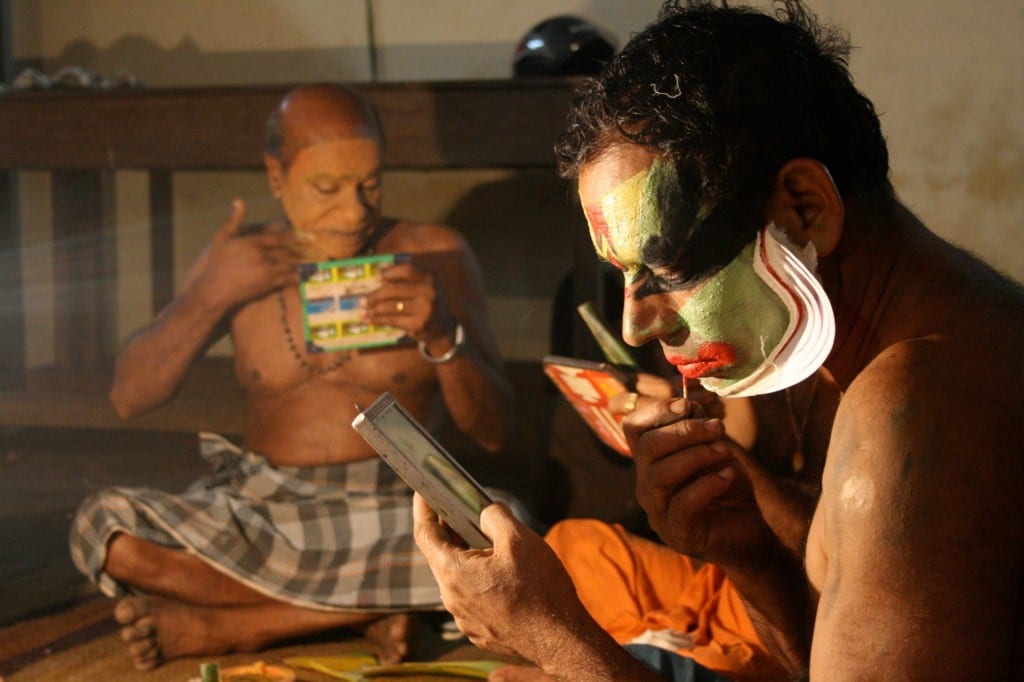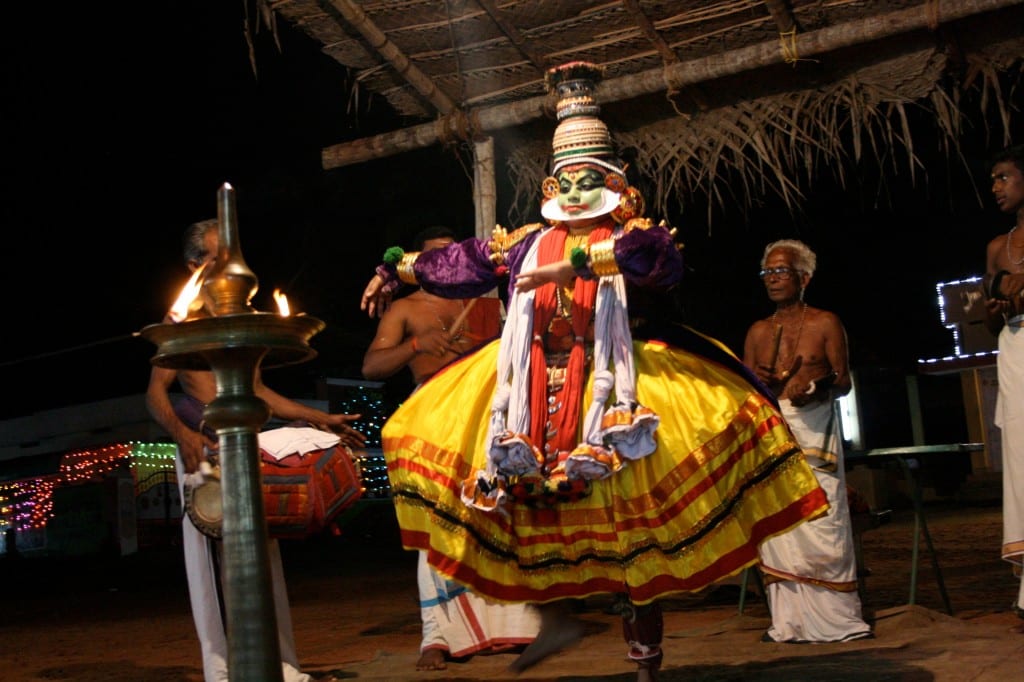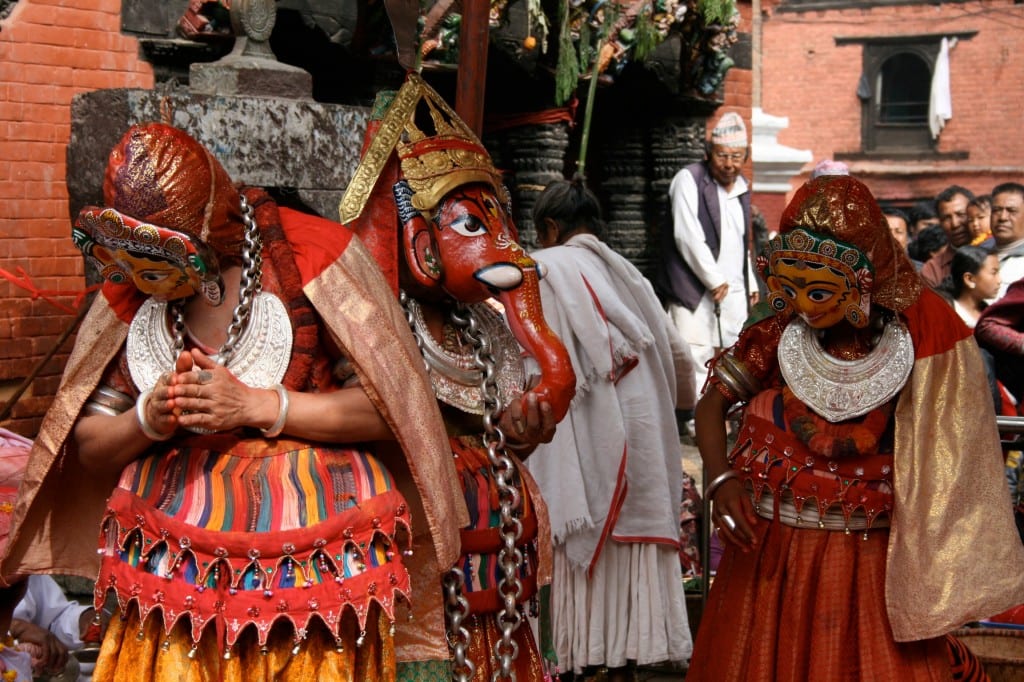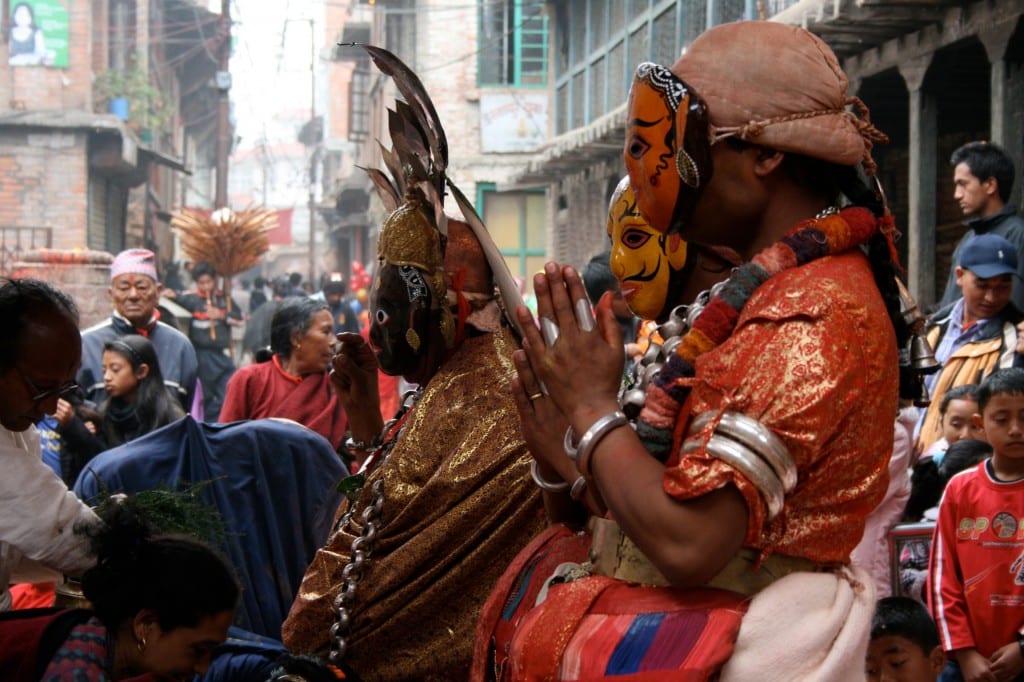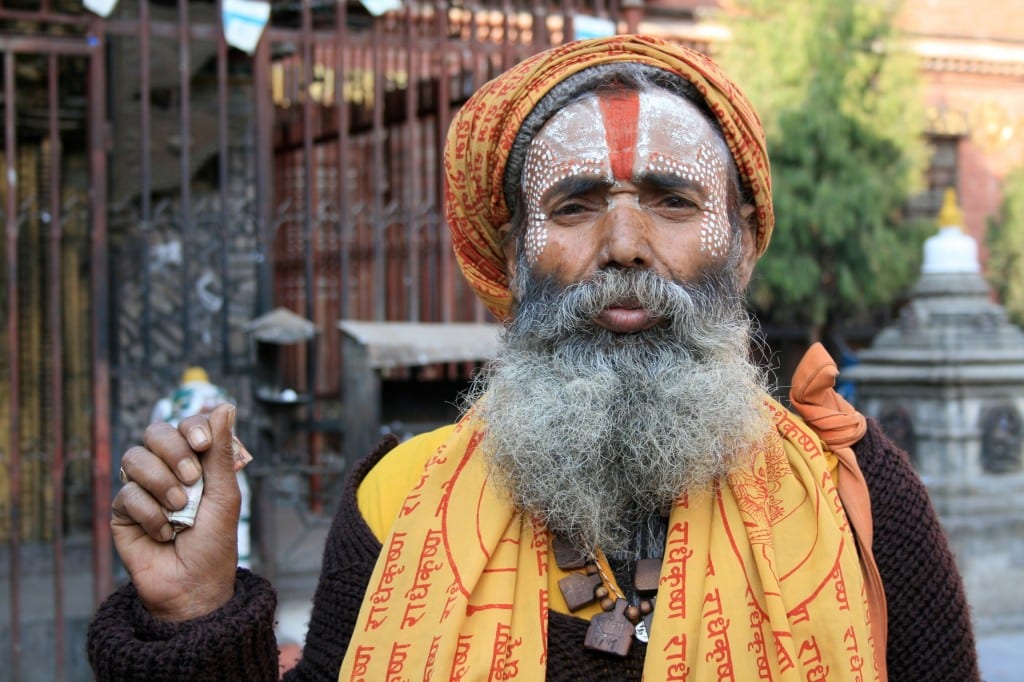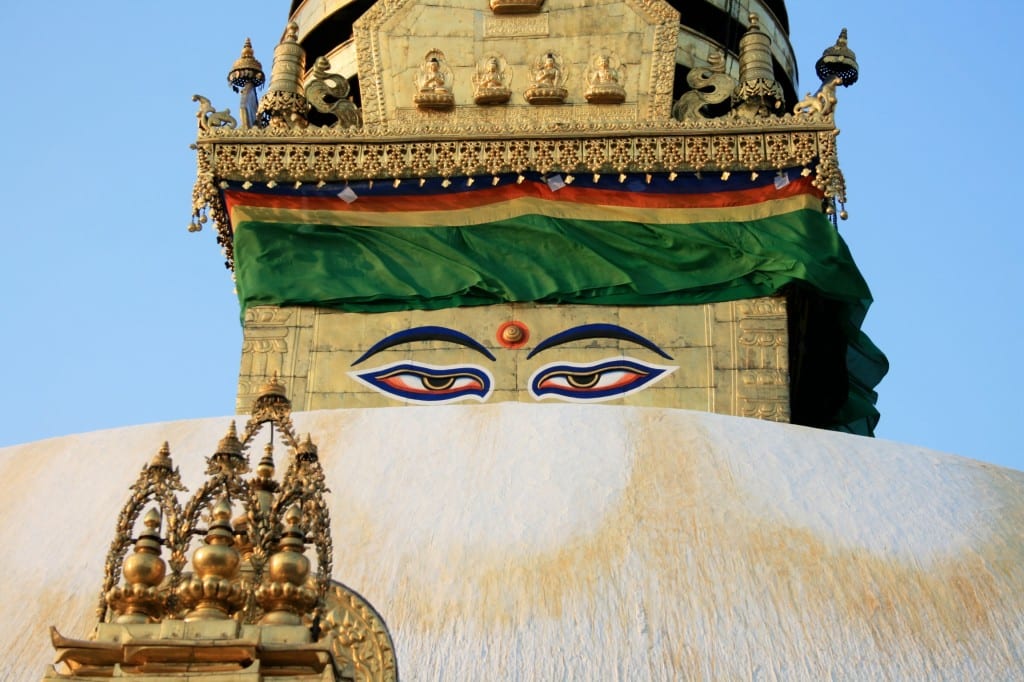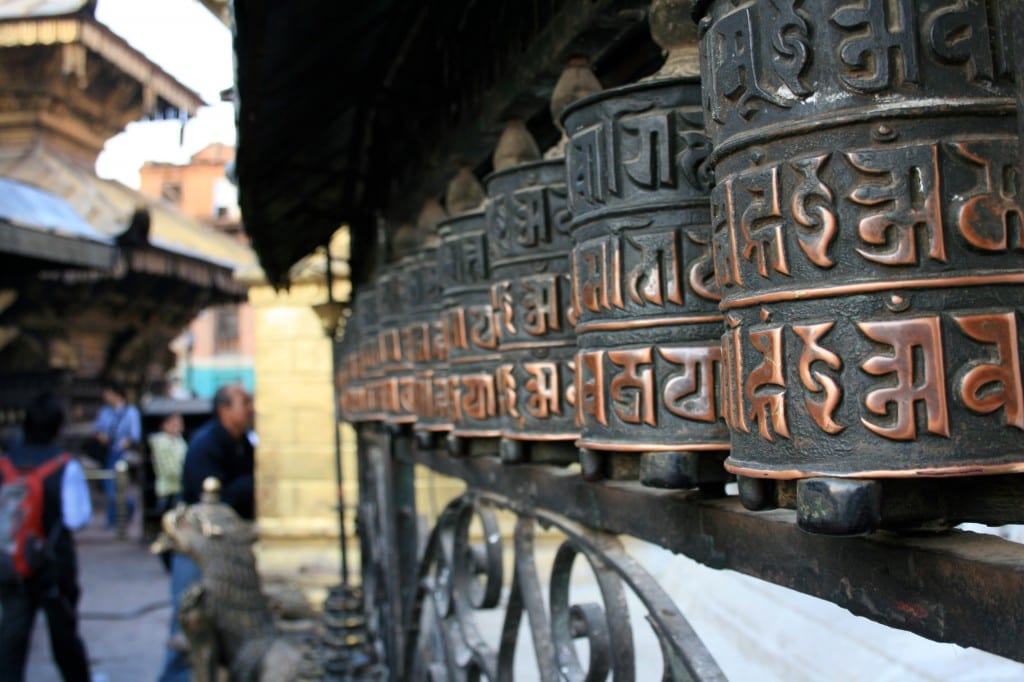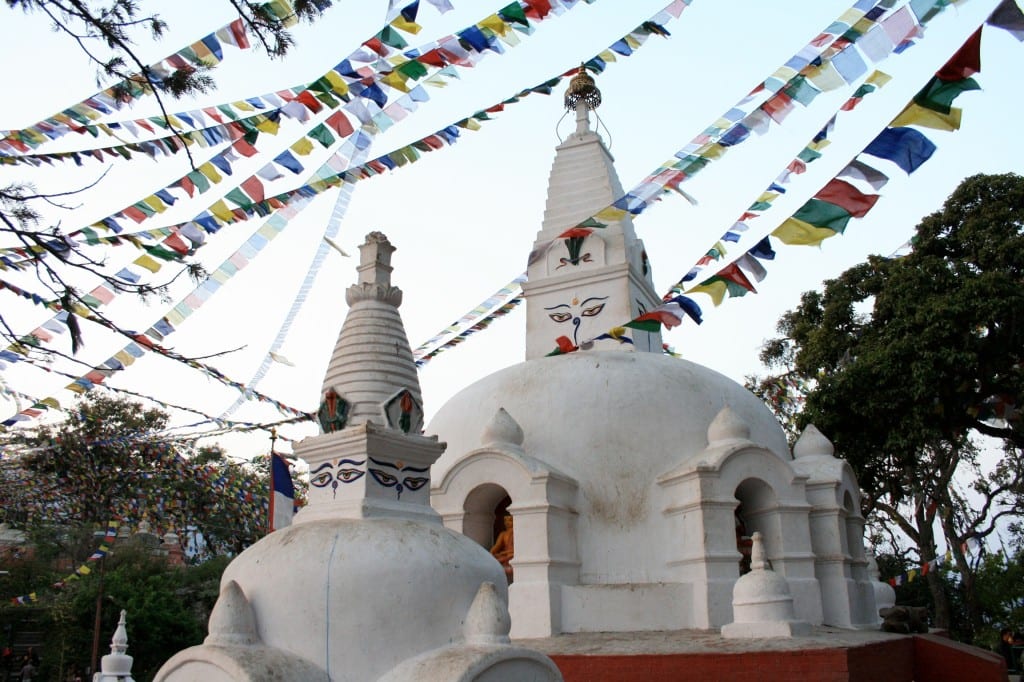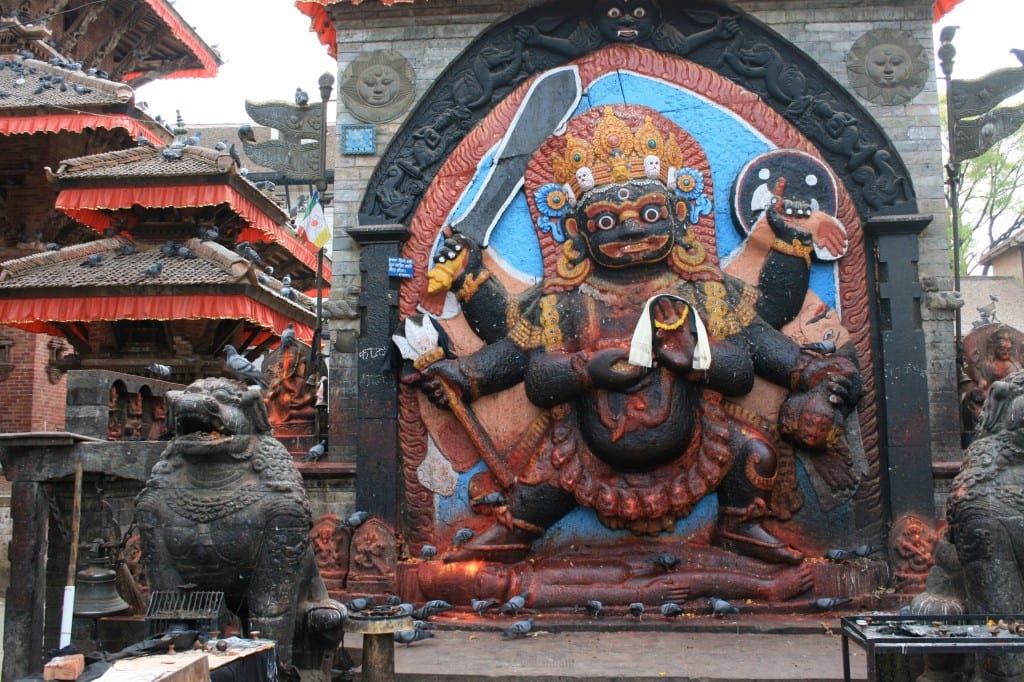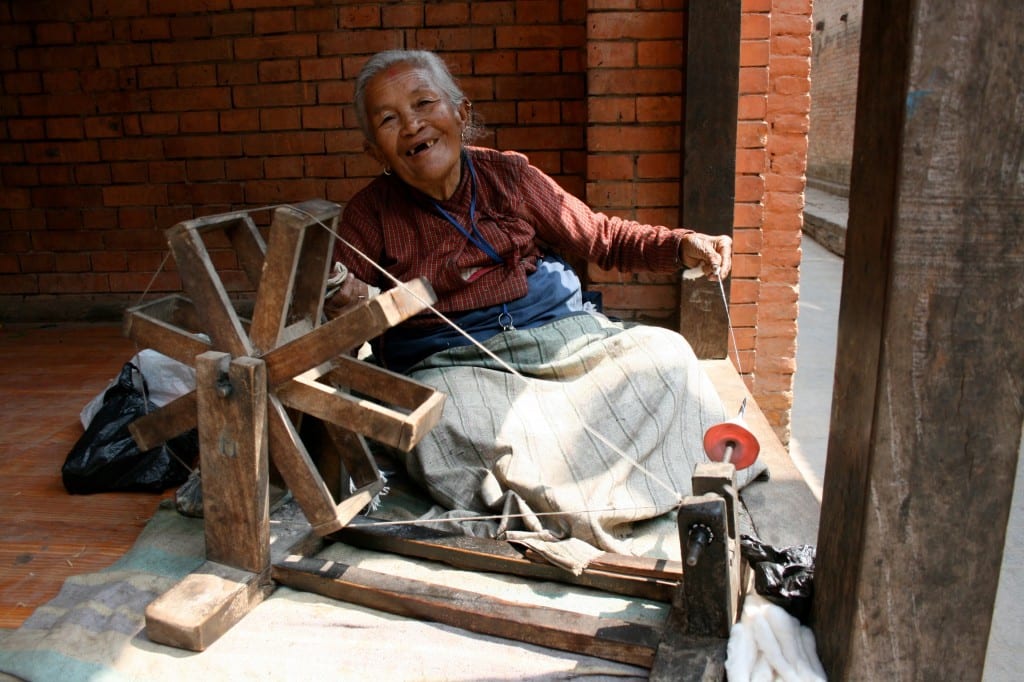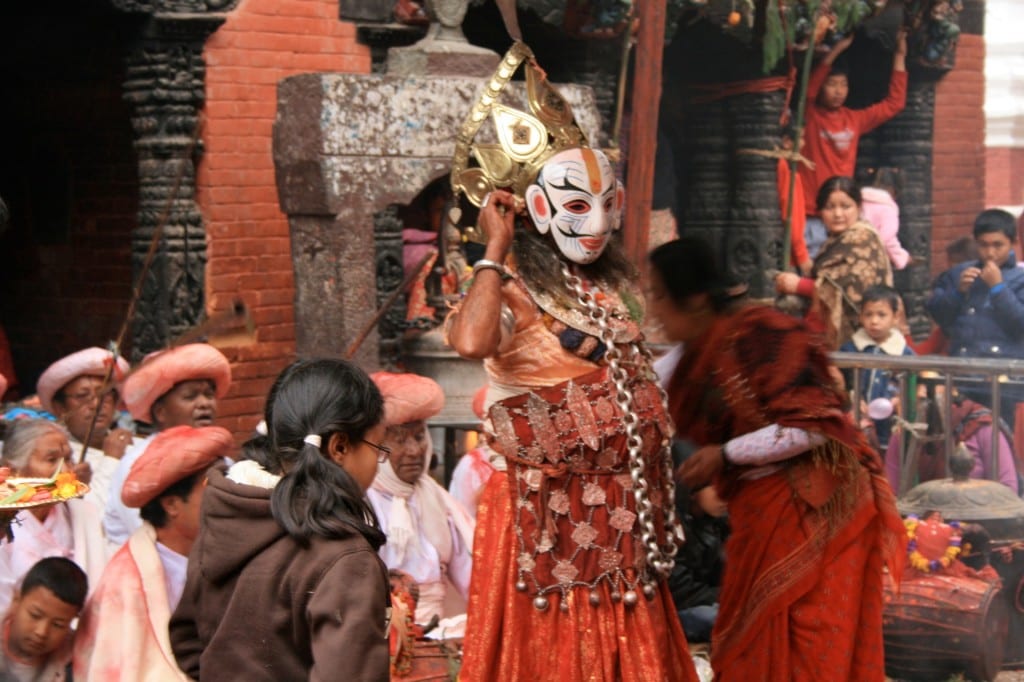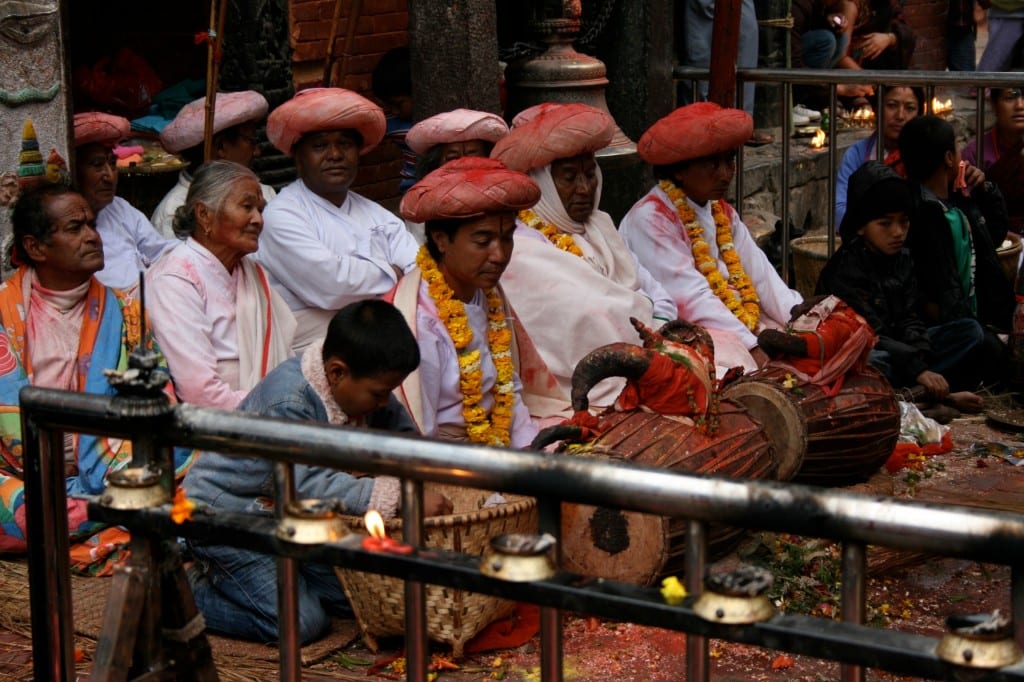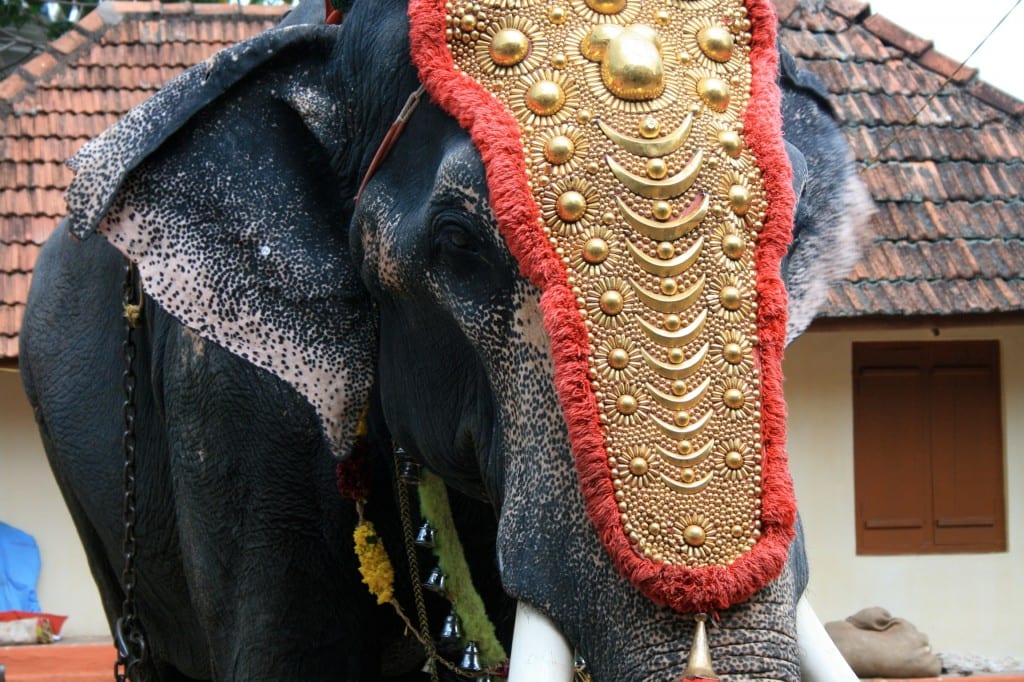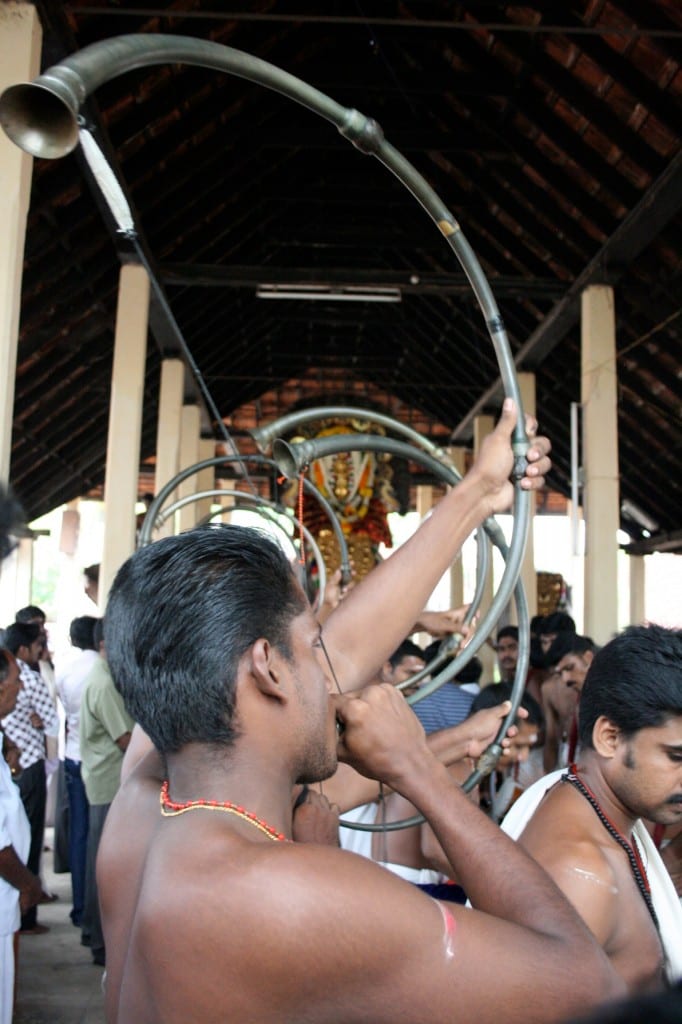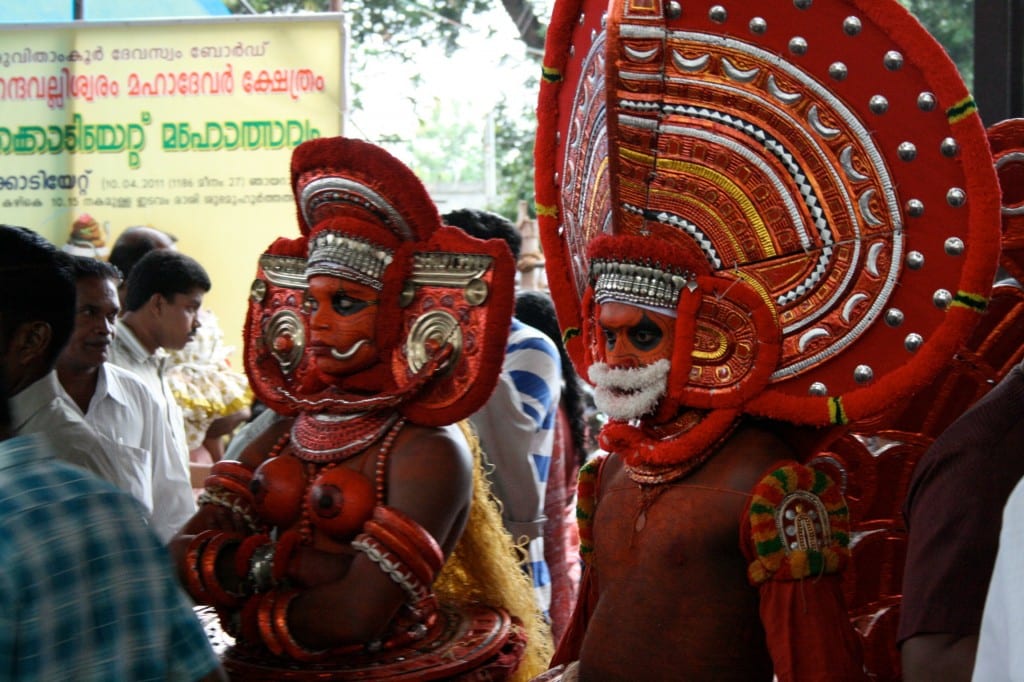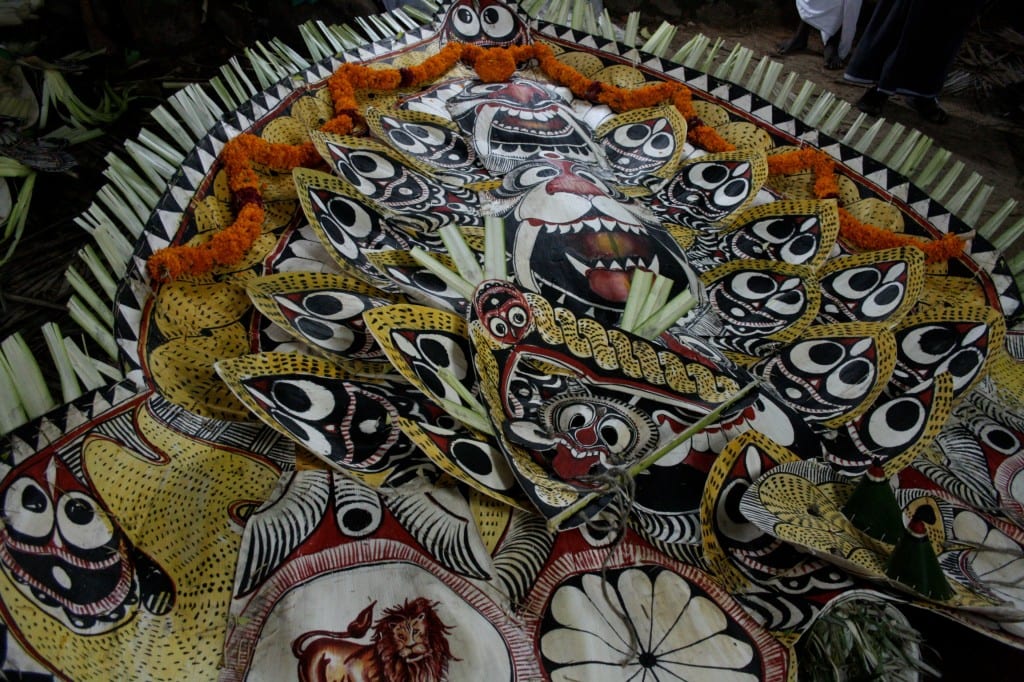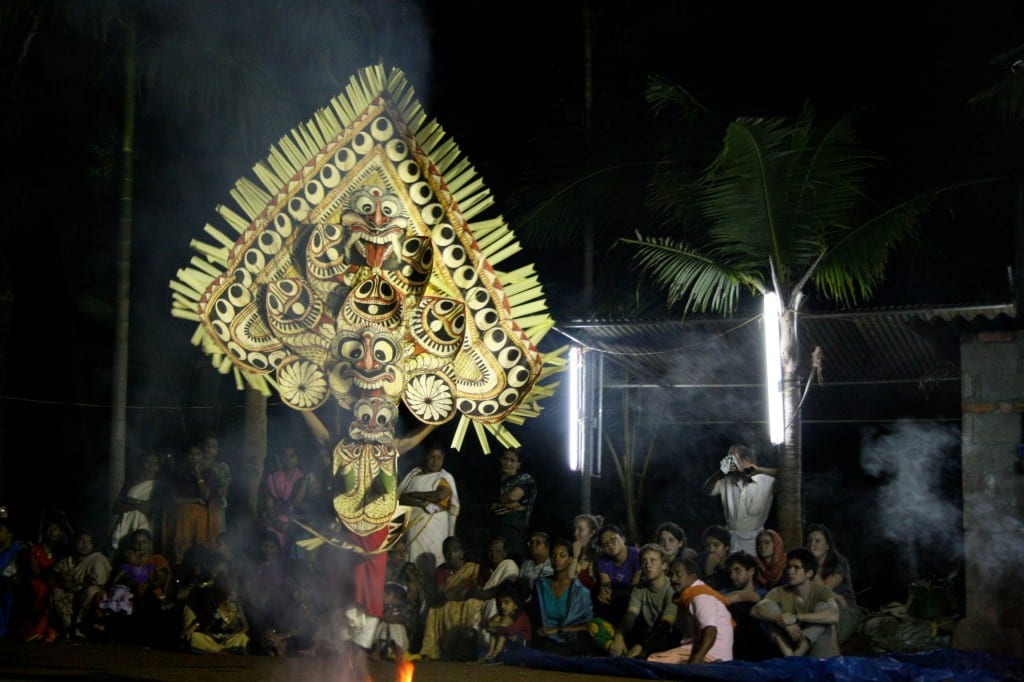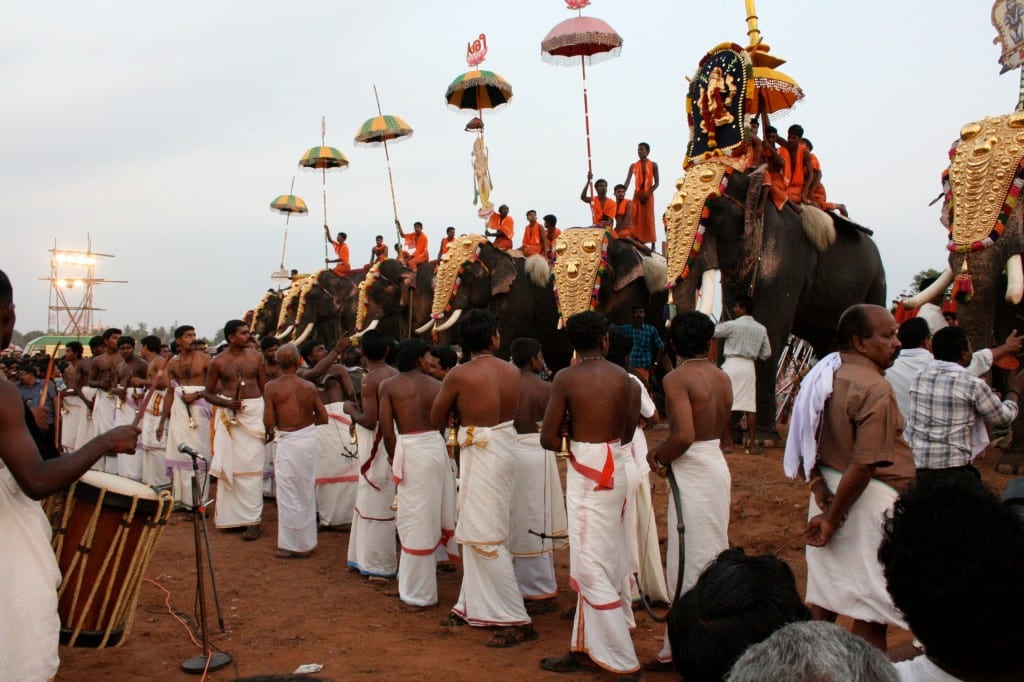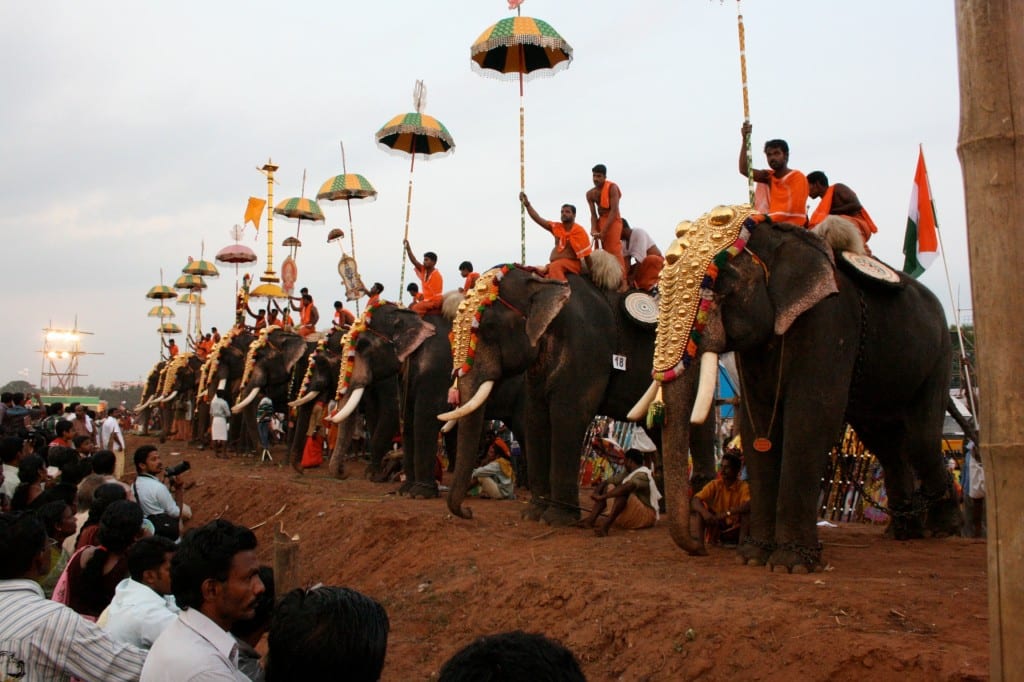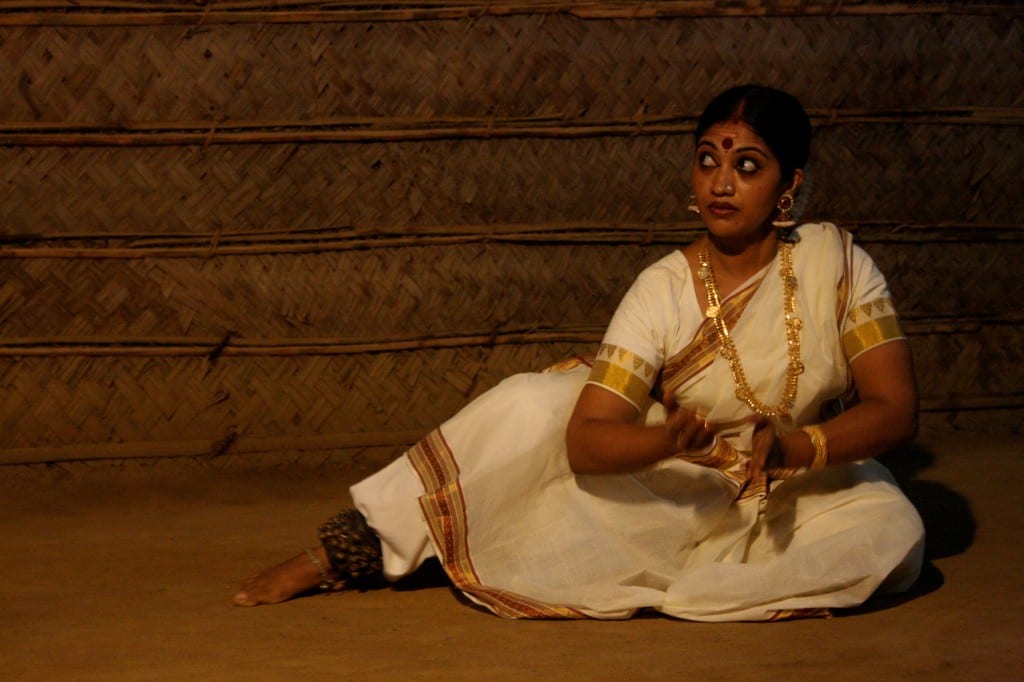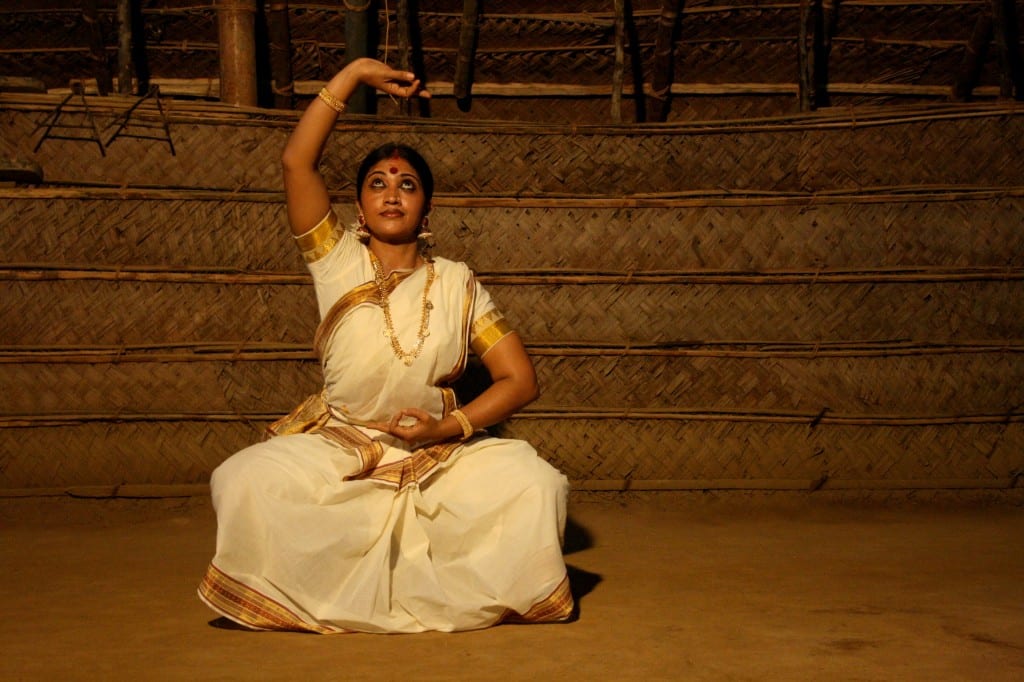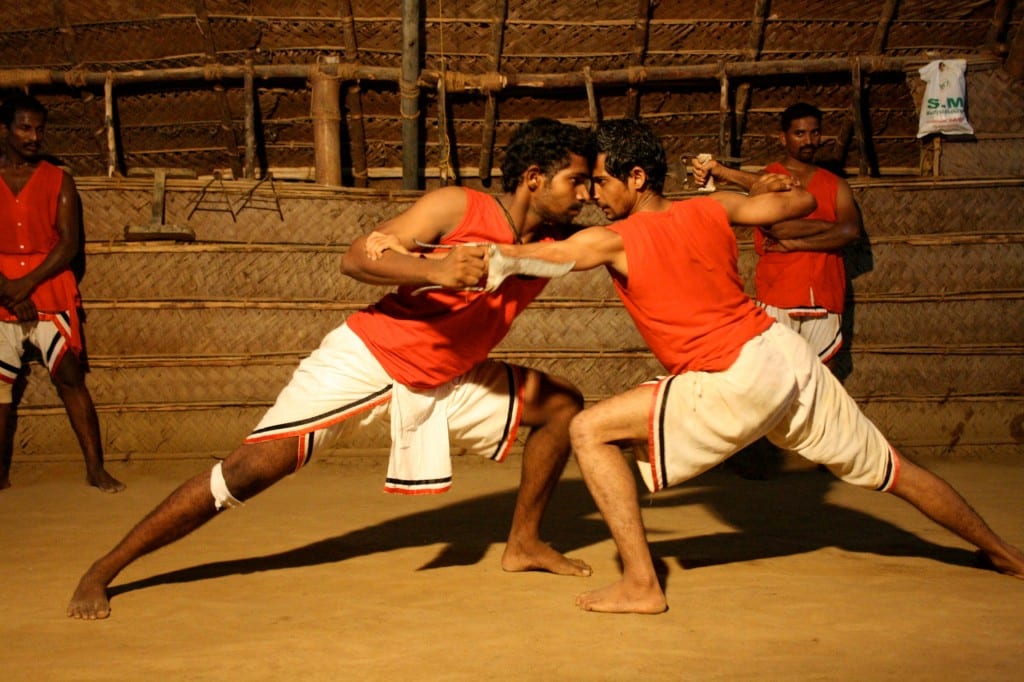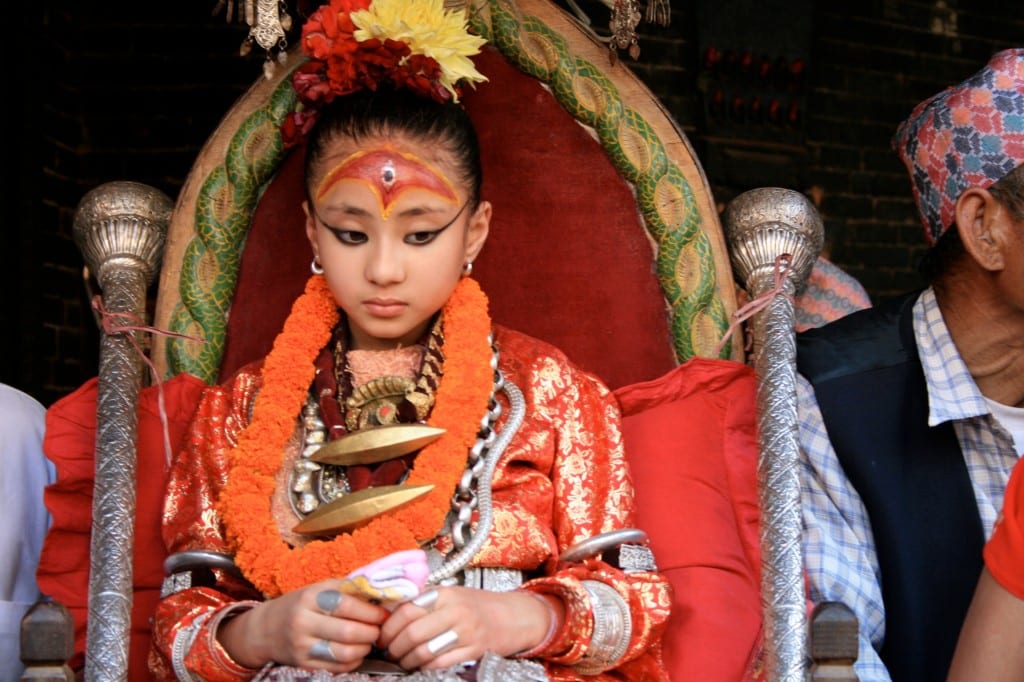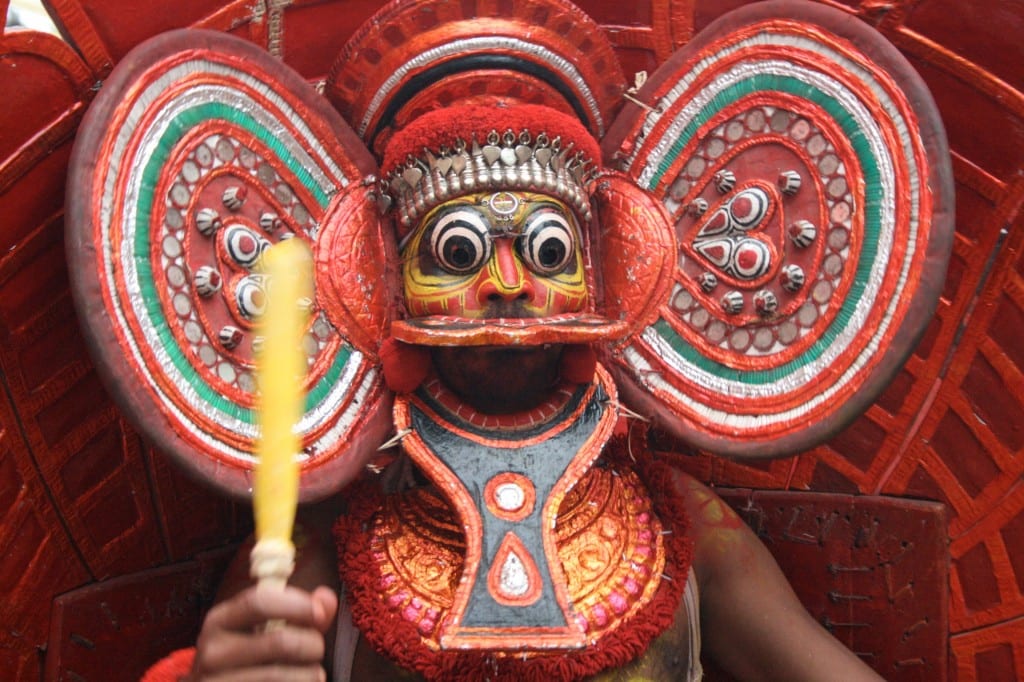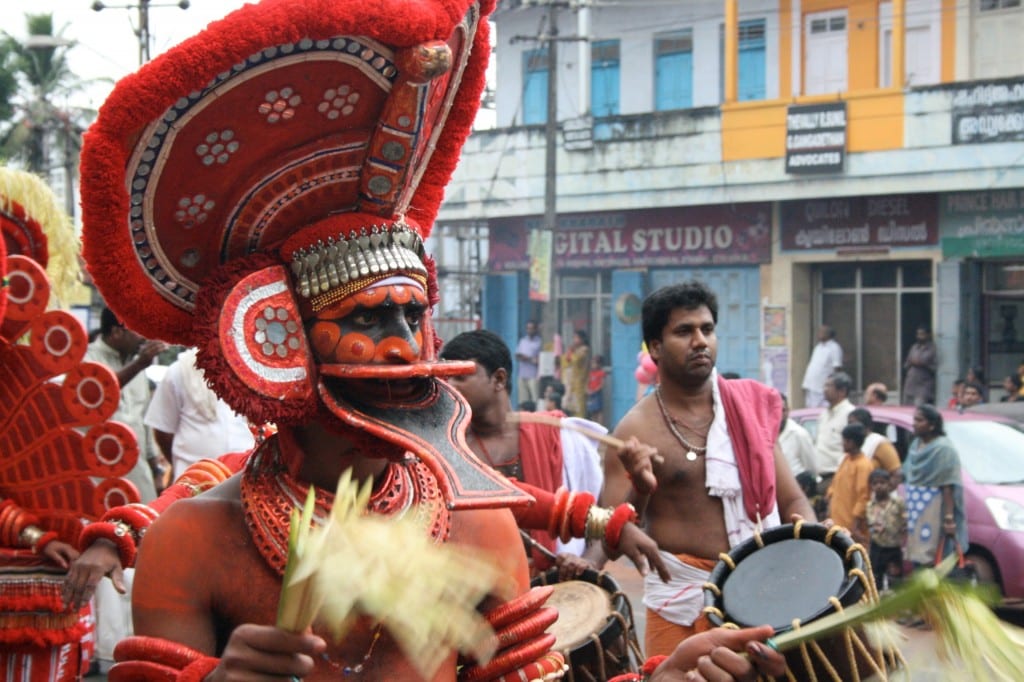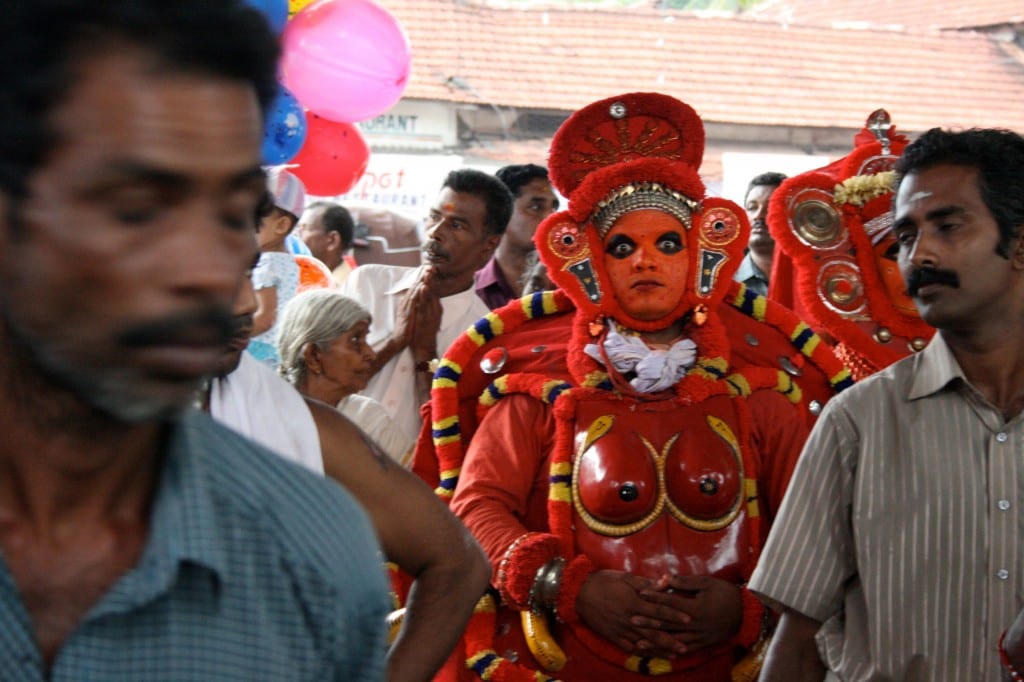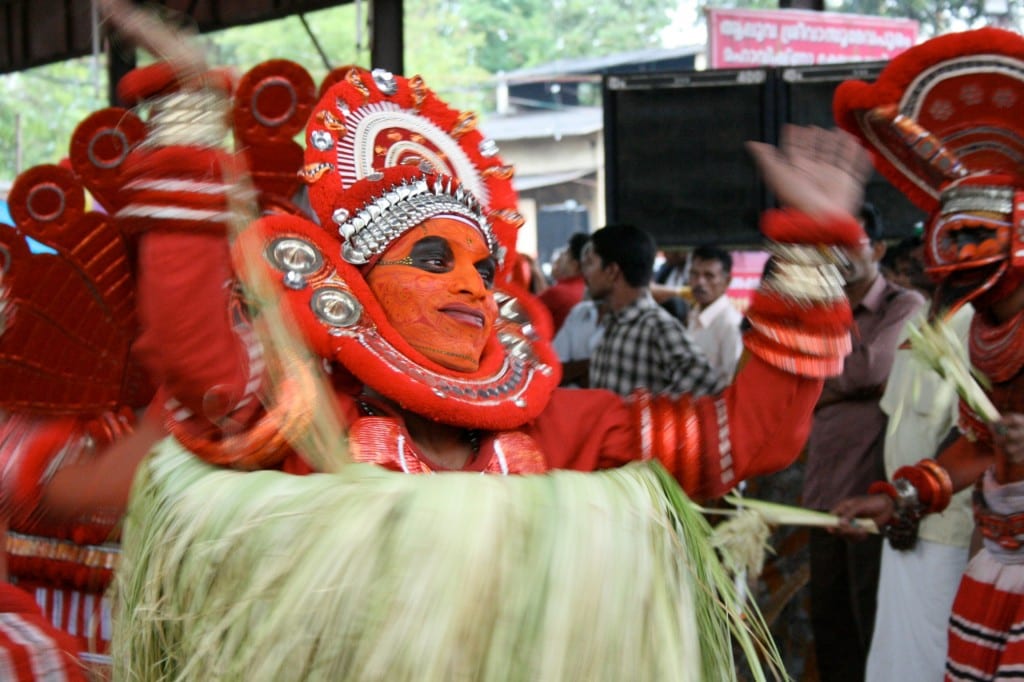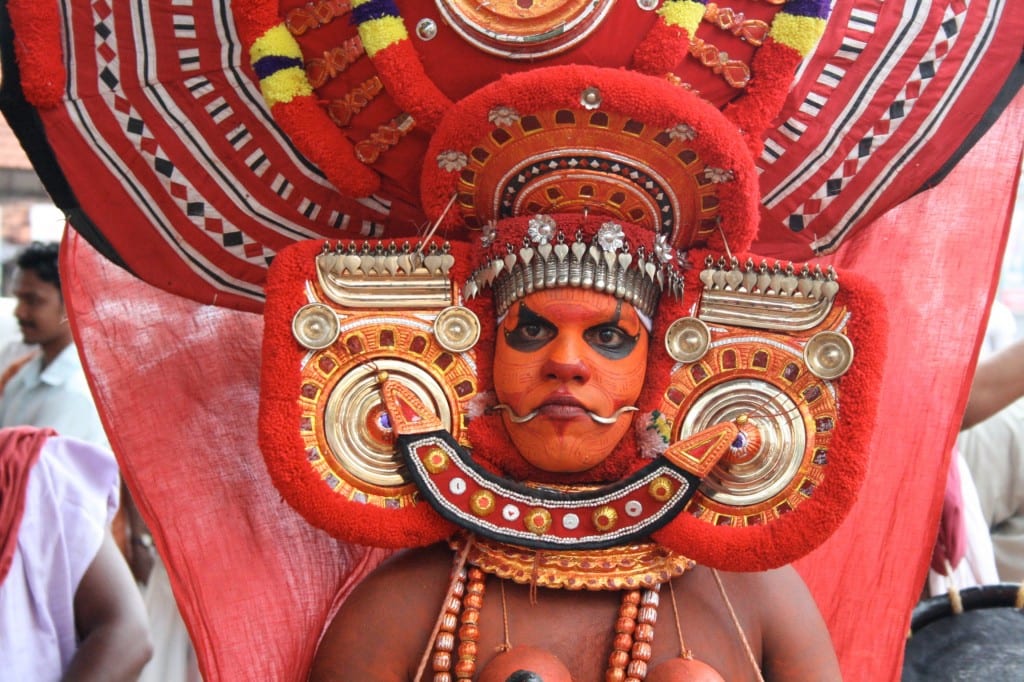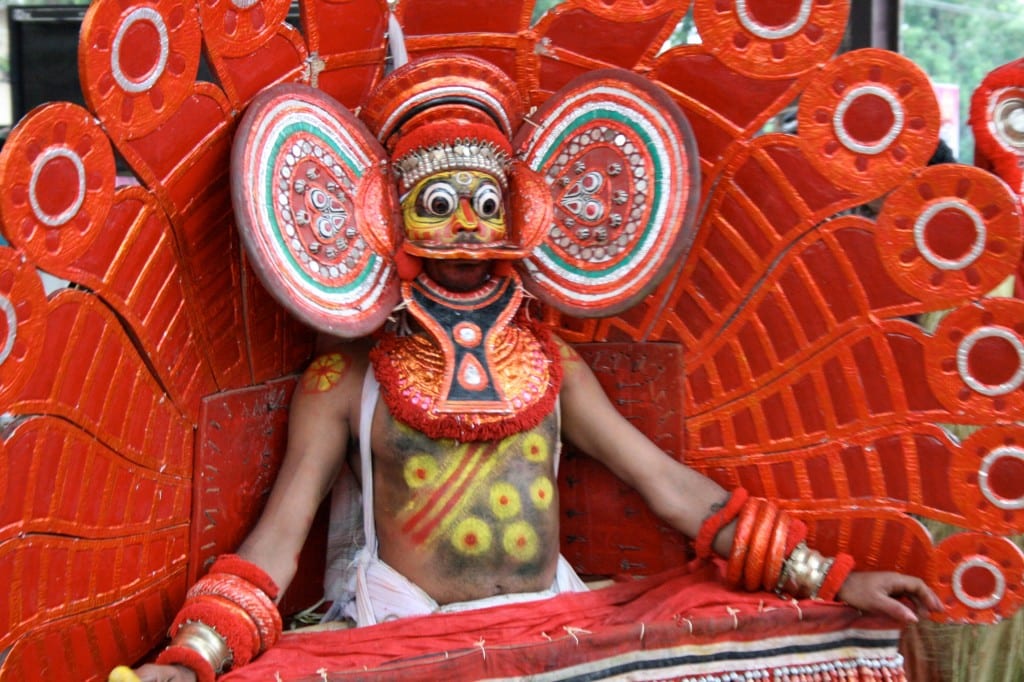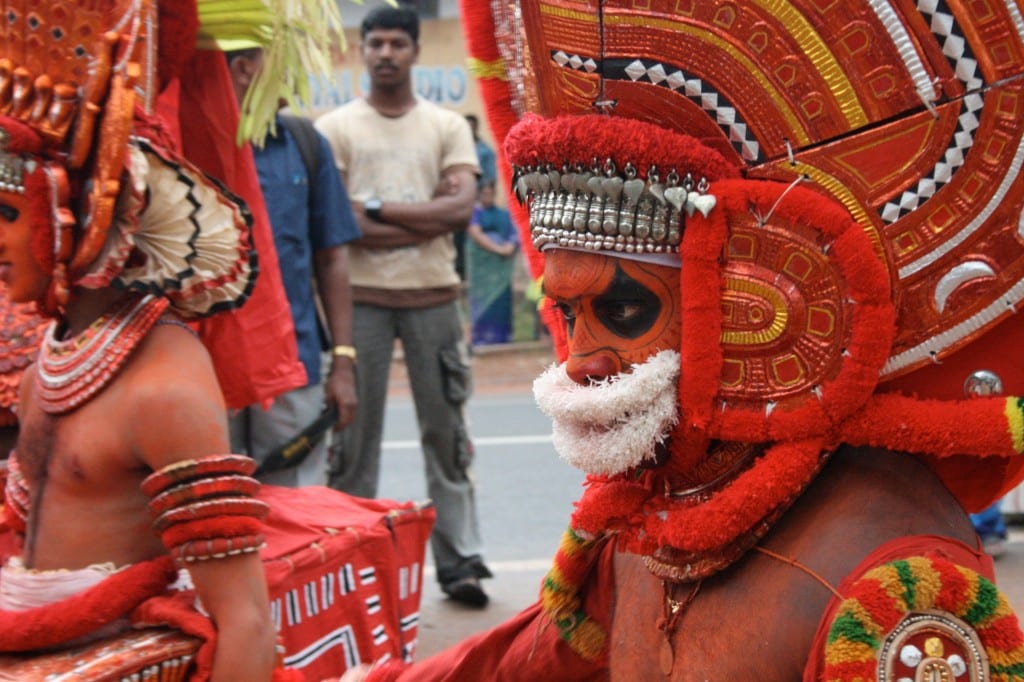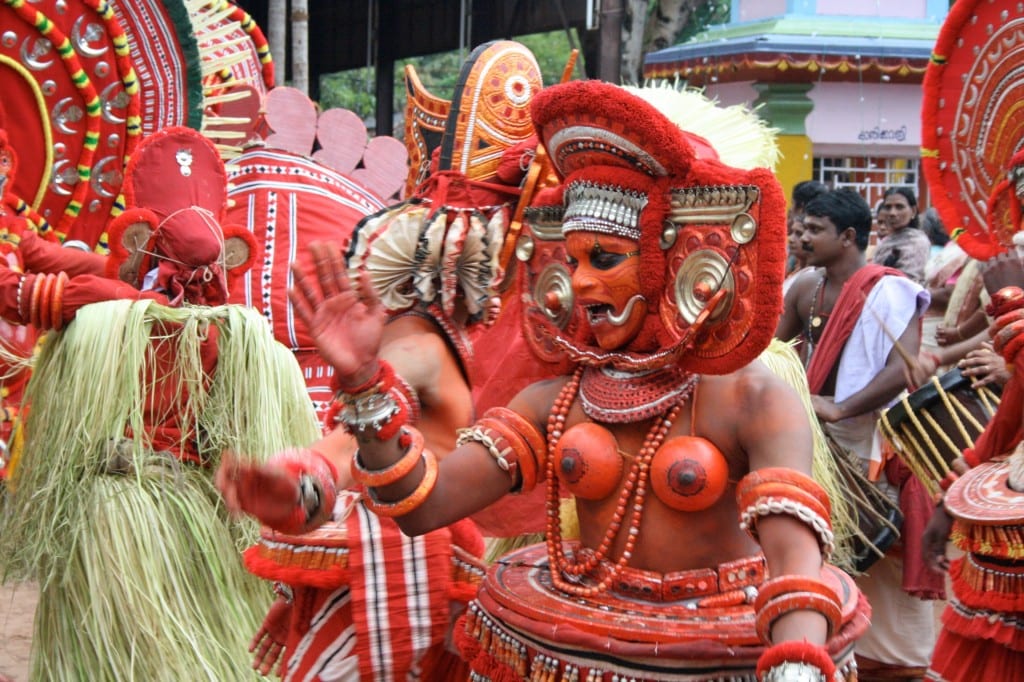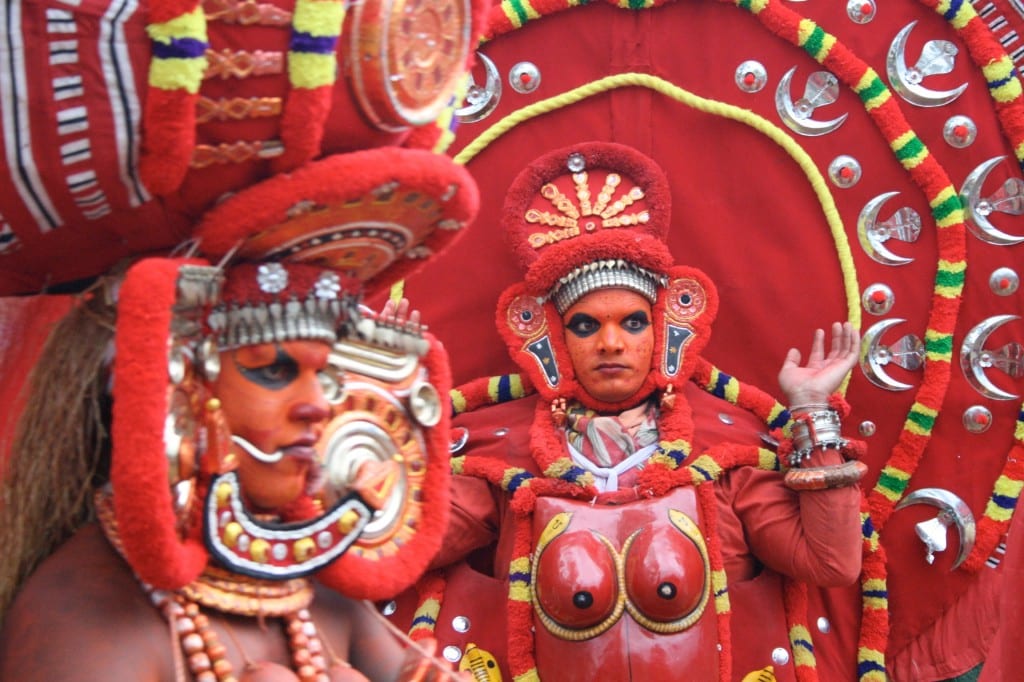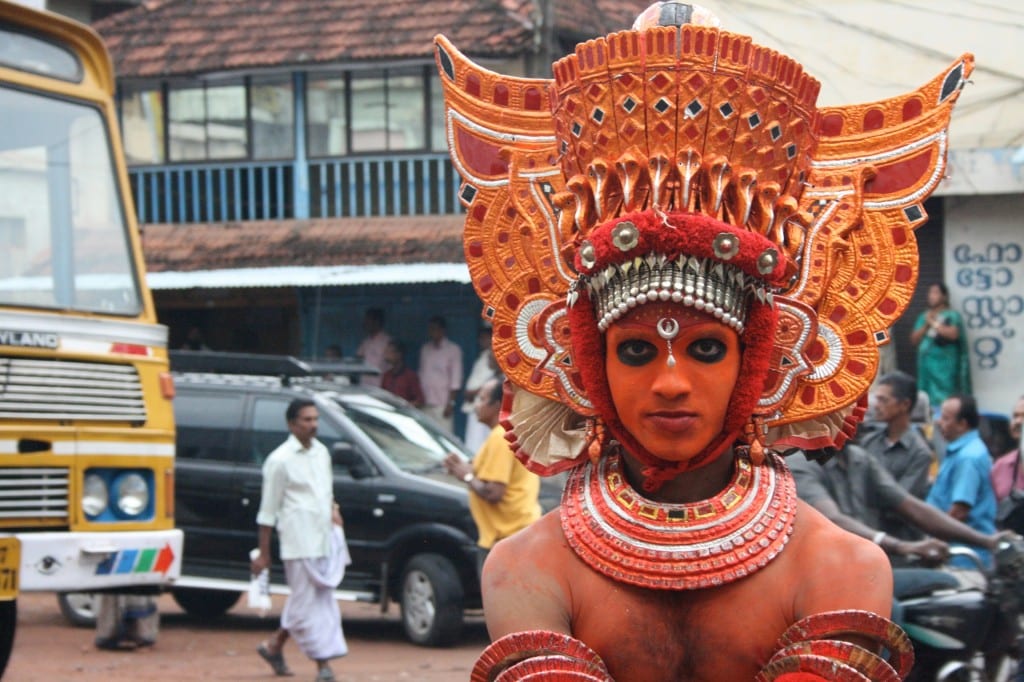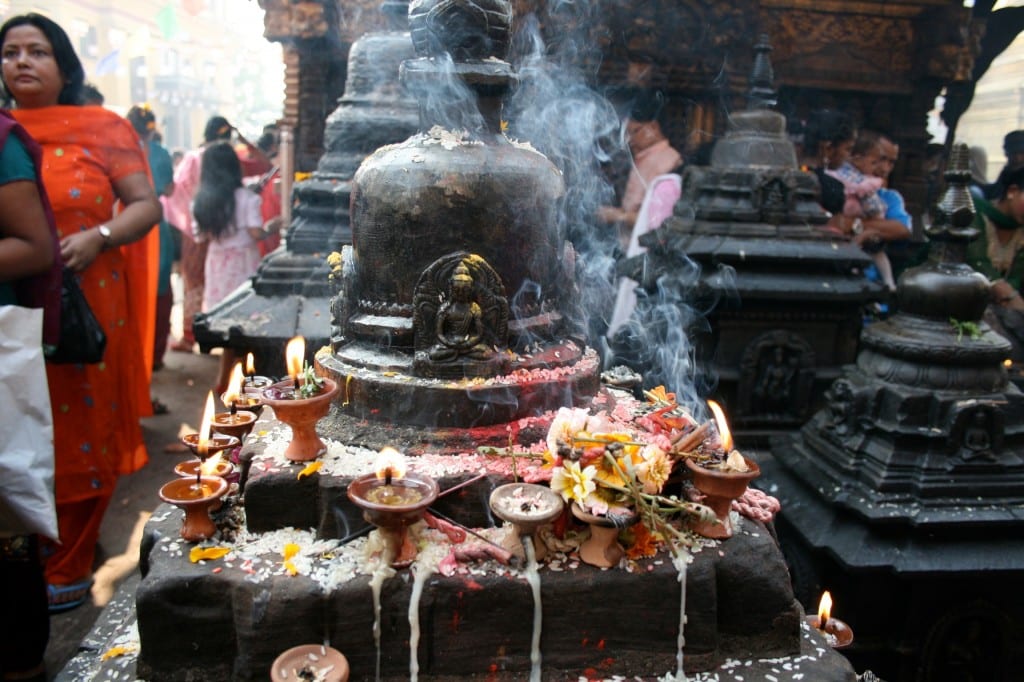One of the largest and most populous regions in the world, South Asia is home to some of the oldest recorded spiritual and performative traditions in existence. This area, often underrepresented in traditional theater studies, continues to make an impressive impact on artists world-wide. Its array of rituals, art, and performance are often accompanied by a rich pedagogy and training progression—both corporeal and spiritual. From martial arts and poetry to visual arts and theater, the influence of South Asia and its inspiring belief systems and mythologies is inarguable.
Theater Mitu has had a long-standing relationship with the region, starting with Artistic Director Rubén Polendo’s first research trip as a student in 1989. Over the last 15 years, the company has researched a wide variety of spiritual and performance traditions, including Kathakali, Mohiniattam, and Kalaripayattu in India, as well as Charya Nritya, Lakhe and the performative rites of sacrifice at Harasiddhi and Dakshinkali in Nepal The region’s incredible cultural landscape make it an essential place to research not only performance, but also the performativity of active and historical belief systems. The verticality of this landscapes history allows us to witness how cultural practices shape society, define the relationship between nature and the dramaturgy of urban planning, and narrate the history of artistic migrations across the continent.
Over the past 15 years, Theater Mitu has been fortunate to study first-hand with masters of these practices in their training facilities all over the region, as well as partnering with leading artistic and cultural institutions, including the Visthar Center for Social Peace and Justice (Bangalore, India), Kalamandalam (Kerala, India), and Aarohan Theater Group (Kathmandu, Nepal). Since 2009, Bangalore has been the home for the South Indian Artist Intensive, where the company gathers artists and practitioners from around the world to research and train alongside Theater Mitu in South Indian performance traditions. Performance research and training, trans-global dialogue, and scholarly exchange continue to be the hallmark’s of Mitu’s time in South Asia.


